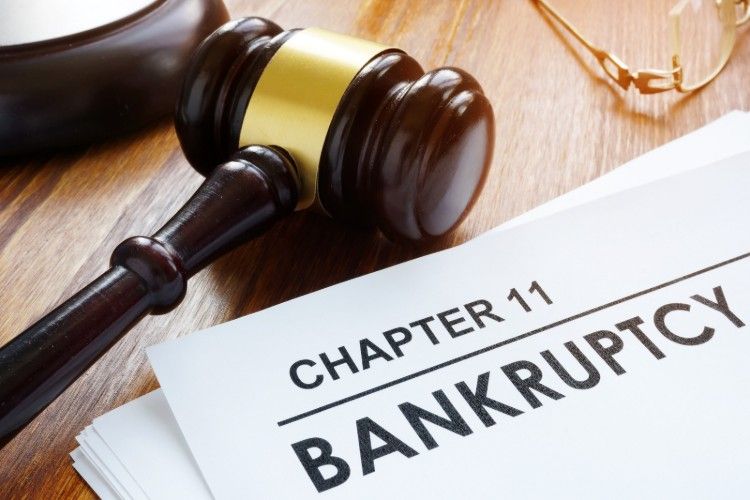
On March 20, 2020, Congress approved, and earlier this month the President signed, the Small Business Reorganization Act of 2019 (SBRA 2019) which streamlines existing rules governing the efforts of small businesses to restructure successfully under Chapter 11 of the Bankruptcy Code. The law effectively makes it more difficult for creditors to contest small business Chapter 11 cases, but it also provides creditors in all bankruptcy cases several major benefits through changes to the preference laws. The timing couldn’t be better with the COVID-19 pandemic affecting virtually every small business and creating financial hardships requiring assistance like Chapter 11 protection.
Subchapter V of Chapter 11.
A small business debtor is a business entity or individual which is engaged in business whose aggregate non-contingent debts (excluding debts to affiliates or insiders) do not exceed $2,725,625 and which elects to be treated as a small business. The Act adds a new subchapter V to Chapter 11 of the Bankruptcy Code to make it easier and less expensive for small businesses to successfully reorganize.
The Act’s key provisions include:
- Only the small business may file a Chapter 11 plan, but the Act requires that the debtor file its plan within 90 days of the date it files its bankruptcy petition, except in certain circumstances;
- A standing trustee similar to those appointed in Chapter 13 cases will be appointed to oversee each small business case;
- A creditors committee will not be formed;
- The Chapter 11 plan can modify the rights of a creditor secured by a security interest in the debtor’s principal residence if the loan secured by the residence was not used to acquire the residence but was used in connection with the debtor’s business;
- The Court can confirm a debtor’s plan without the support of any class of claims as long as the plan does not discriminate unfairly and is deemed to be fair and equitable with respect to each class of claims;
- To be fair and equitable, the Chapter 11 plan must provide that all of the debtor’s projected disposable income to be received during the length of the plan will be applied to make payments under the plan for a period of 3 to 5 years.
As in all Chapter 11 cases, creditors will need to be vigilant to ensure that Courts properly evaluate Chapter 11 plans, especially those that lack creditor support, and that their rights are properly protected.
Changes to Preference Laws.
The Act makes several significant changes to existing preference laws which will be welcomed by creditors. Currently, trustees and debtors in possession have broad authority to file lawsuits to recover preferential transfers which were made 90 days prior to the date the bankruptcy case was filed, or in the case of insiders, one year. In addition, under the prior law if the amount of the transfer was less than $13,650, then the trustee or debtor in possession would have to file the lawsuit to recover the transfer in the federal district where the defendant resides, not in the district where the bankruptcy case is pending. The Act raises the threshold for non-insider defendants from $13,650 to $25,000 so that claims of less than $25,000 must be filed in the district where the defendant resides. In addition, the Act adds as a requirement that, before filing the lawsuit to recover a preference, the trustee or debtor in possession must exercise reasonable due diligence and must “. . . take into account a party’s known or reasonably knowable affirmative defenses . . .”. Due to costs and logistics, preference suits are rarely filed outside of the district where the bankruptcy case is pending, so raising the threshold to $25,000 effectively immunizes most transfers less than $25,000 from recovery. In addition, the Act’s due diligence requirement will certainly result in a reduction of the number of preference lawsuits.
Contact Us:
We understand debt settlement and bankruptcy is a challenging topic to face both financially and emotionally. The processes can become very complicated in a system that is difficult to navigate and frequently changes. Consulting with a good lawyer as soon as possible is incredibly important to the success of your debt settlement or bankruptcy strategy. At JLG Lawyers we offer solutions to help advise you and answer questions all the way to a full attorney handled case. Contact us now for a free case review and strategy session.
JLG Lawyers and Michael Jaurigue, Esq. are located in Glendale, California and specialize in debt settlement and bankruptcy matters. Michael Jaurigue is a UCLA and Berkeley Law graduate and has been practicing law for 20 years in Los Angeles and worked at Sheppard, Mullin, Richter, and Hampton representing several Fortune 100 clients prior to forming his own firm 10 years ago. JLG Lawyers is located at 300 W Glenoaks Blvd. Suite 300, Glendale, California 91202. 818-630-7280.

